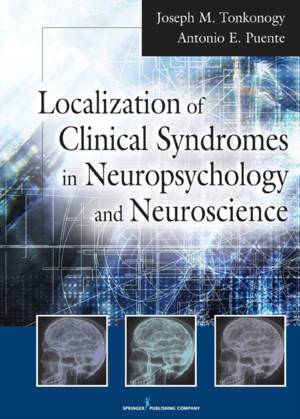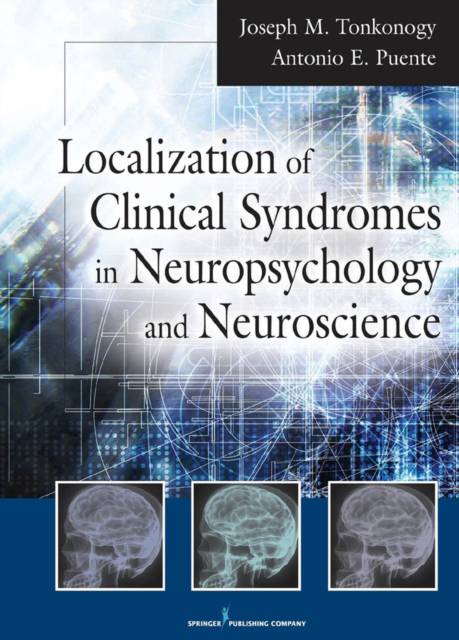
- Retrait gratuit dans votre magasin Club
- 7.000.000 titres dans notre catalogue
- Payer en toute sécurité
- Toujours un magasin près de chez vous
- Retrait gratuit dans votre magasin Club
- 7.000.0000 titres dans notre catalogue
- Payer en toute sécurité
- Toujours un magasin près de chez vous
Localization of Clinical Syndromes in Neuropsychology and Neuroscience
Joseph M Tonkonogy, Antonio E PuenteDescription
Localization refers to the relationship between the anatomical structures of the brain and their corresponding psychological or behavioral functions. Throughout the history of neuropsychology, there has been considerable debate over how localized mental functions truly are. By the mid-20th century, a formidable amount of evidence strongly supported the "modularity hypothesis" that psychological functions such as language and memory reside in specific neuroanatomical areas. Recent neuroimaging studies suggest a more holistic view - that psychological functions are distributed and dynamically organized across multiple brain regions.
This book attempts to reconcile the classic and modern approaches, arguing that newer imaging techniques must be used in conjunction with, rather than replace, traditional neuropsychology approaches such as interviewing, testing, and autopsy exams. Only by triangulating these approaches can neuropsychologists begin to understand the complex relationship between brain structure and mental function that is exhibited across the spectrum of neurological disorders. The perspective offered by Drs. Tonkonogy and Puente on this philosophical and scientific debate is a provocative counterargument to current research that overemphasizes imaging studies to the exclusion of other useful techniques.
Key features:- Offers systematic descriptions of the clinical manifestations, anatomical data, and history of the various approaches to neuropsychological syndromes
- Differentiates syndromes characterized by disturbances of conventional versus unconventional information processing
- Examines both traditional and modern approaches to new neuropsychological syndromes of social agnosia, social apraxia, and agnosia of actions, as well as memory disorders, visual disorders, and more
An indispensable resource for clinicians and researchers in neuropsychology and neuroscience, this book serves as a solid frame of reference for the localization of clinical neuropsychological symptoms."
Spécifications
Parties prenantes
- Auteur(s) :
- Editeur:
Contenu
- Nombre de pages :
- 864
- Langue:
- Anglais
Caractéristiques
- EAN:
- 9780826119674
- Date de parution :
- 23-01-09
- Format:
- Livre relié
- Format numérique:
- Genaaid
- Dimensions :
- 183 mm x 263 mm
- Poids :
- 1628 g

Les avis
Nous publions uniquement les avis qui respectent les conditions requises. Consultez nos conditions pour les avis.






